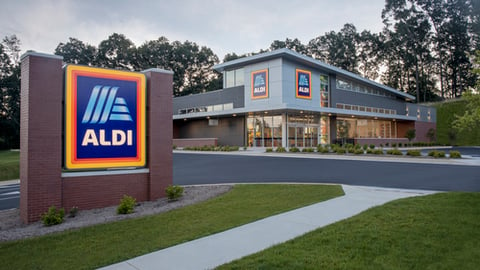Survey Reveals Private Brands Focus on Value, Premiumization
Private brands have enjoyed a run of strong growth in recent years, and that momentum is expected to continue into 2026 and beyond as a majority of industry executives recently polled by FMI – The Food Industry Association said they will continue investing in store brands over the next two years.
In its "The Power of Private Brands 2025" report, 95% of respondents said private brands are extremely or very important to their organization. Additionally, 86% said they plan to moderately or significantly increase private brand investment in the coming 24 months.
The importance of retail private brands and plans for additional growth in the coming years show the continued evolution store brands have seen. Part of that evolution is the motivating factors driving product development. While price was once king, 73% of survey respondents said providing products that offer the “best value” was key to future growth, up 10 percentage points from 2024. Also, 63% pointed to premiumization as an opportunity to expand private brands, while “best/lowest prices” was chosen by 49% of respondents.
With new private label assortments regularly hitting store shelves, retailers have also worked to get their own brands in front of e-commerce shoppers. FMI’s report noted that nearly 85% of private brand assortments are now available online, reflecting a sharp increase in digital accessibility. Food retailers continue to expand their private brand e-commerce strategies, recognizing that online growth will likely outpace in-store sales. In 2024 alone, private brand online sales grew by 5.2%, with 9.3% of private brand sales now conducted online.
“The growth of e-commerce has opened new avenues for private brands to thrive,” said Tom Cosgrove, director of Industry Relations at FMI. “Retailers are not only expanding their online private brands assortments but also innovating how they engage with consumers digitally. This is a pivotal shift for the food retail private brands industry.”
In addition to the shift in focus from price to value and the growth opportunities offered by e-commerce, more retailers see their private brand assortments as a tool to differentiate themselves from competitors. When asked how far along they are in private brand development as a key point of differentiation for shoppers, 47% of respondents said they were “well along,” up from 37% in 2024. Additionally, 29% said “midway” and 24% said "early."
Marketing of private brands by retailers has increased, and data in the FMI report shows that most continue to use traditional methods to attract the attention of consumers. The survey revealed that 94% promote private brands to shoppers, with 50% saying they put “a lot of effort” behind their promotional efforts (38% said “some effort”).
In-store signage is used by 100% of survey respondents, with 94% saying they use paper or digital circulars, social media, or end-cap/pallet displays. Rounding out the top five were coupons at 88%. Only 44% said they used paid advertising, 38% use retail media networks, and 31% television ads.
“Sixty percent of survey respondents indicated they plan to enhance their private brand marketing, and 29% responded that they are enhancing online shopping/omnichannel,” said Steve Markenson, vice president of Research and Insights at FMI. “Social and digital media remain central to reaching younger consumers, while food retailers pursue multiple approaches to spotlight private brands in e-commerce.”
The survey of 51 industry executives was completed by FMI between June 16, 2025, and July 8, 2025. Companion interviews with food industry executives were also conducted to enhance the insights.




